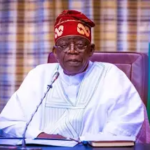Reactions Trail Supreme Court Judgment On LG Autonomy

Several reactions have trailed the Supreme Court’s judgment which finally granted financial autonomy to the 774 Local Government Areas of Nigeria to control their finances.
The judgment has barred governors in the country from interfering in the funds accruing to councils in their states.
The Supreme Court also ruled that governors do not have the power to dissolve democratically elected local government council and replace them with caretaker committees.
The reactions were for and against, but those hailing the Alex’s court ruling far outweigh those against.
The views of Nigerians commending the judgment believe that time has come for genuine development from he grassroots.
They maintained that the governors which hitherto dictated how the revenue allocation from the federation account to the Councils are expended, will now look elsewhere.
However, a former governor of Delta State, Chief James Onanefe Ibori has faulted the judgement.
Ibori described the judgement as a major setback to the principle of true federalism.
In a statement he personaly released on his verified X handle, he said, “The court ruling on the matter is an assault on true federalism.”
According to him, “the Supreme Court has dealt a severe setback on the principle of federalism as defined by section 162(3) of the 1999 Constitution (as amended).
“The section expressly provides thus: Any amount standing to the credit of the Federation Account shall be distributed among the Federal and State Governments and the Local Government Councils in each State on such terms and in such manner as may be prescribed by the National Assembly.
“Sections 6 provide further clarity on the subject matter. (6) Each State shall maintain a special account to be called the “State Joint Local Government Account,” into which shall be paid all allocations to the local government councils of the state from the Federation Account and from the government of the state.
“The court’s ruling on the matter is an assault on true federalism. The federal government has no right to interfere with the administration of Local Governments in under any guise whatsoever. There are only two tiers of government in a federal system of government.”
While maintaining that he is opposed to state governors meddling into the resources of the local governments, Ibori asserted that the judgement will impede independence of the states as enshrined in the constitution.
“I’m opposed to fiddling with the allocations to the Joint LG Accounts at the state level, but that in itself does not call for this death knell to the clear provisions of Section 162 of the constitution. The implications of the ruling are far reaching, and the issues that readily come to mind are:
“Constitutional Interpretation: The Supreme Court’s ruling appears to contradict the explicit provisions of Section 162 of the 1999 Constitution. This raises questions about judicial interpretation and whether the court has overstepped its bounds in reinterpreting clear constitutional language.
“Balance of Power: The ruling potentially shifts the balance of power between the federal government and states. By allowing federal intervention in local government finances, it arguably centralizes more power at the federal level, contrary to the principles of federalism.
“State Autonomy: This decision could be seen as an erosion of state autonomy. States are meant to have significant control over their internal affairs, including the administration of local governments, in a federal system.
“Financial Independence: The ruling may impact the financial independence of states and local governments. If the federal government can directly intervene in local government finances, it could potentially use this as a tool for political leverage.
“Precedent Setting: This decision could set a precedent for further federal interventions in areas traditionally reserved for state governance, potentially leading to a more centralized system of government over time.
That Local Governments must be “democratically elected “ goes without saying. Yes, I agree, that’s the position of the constitution but withholding their allocation is not the way to go. It’s wrong.
“In the coming days, we will begin to fully understand the implications of the Supreme Court decision. An assault on the constitution is not the answer to fiddling with the Joint LG Acount. If the ruling is saying Governors cannot temper, touch, fiddle with the Joint Accounts, that’s fine because they shouldn’t be doing that in the first place. But asking the Federal Government to pay Local Governments allocations to the account of the Local Government directly will lead to utter chaos and avoidable friction in governance.
“Like the Hon. Justice Oputa JSC of blessed memory once said in describing the Supreme Court ” we are not final because we are infallible, but we are infallible only because we are final”.
“It is my sincere hope that the judgement delivered today will be reviewed at the earliest time possible because it clearly stands the concept of federalism on its head”, Ibori said.









